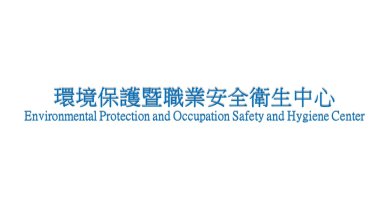As economies suffer, businesses face a multitude of problems of restructuring, operating at losses, or business contraction. The result of these problems may cause companies to feel compelled to reduce their workforce. These layoffs, as they are referred to, target the middle-aged and elderly employees with a much greater frequency. There is an age bias which reduces the number of new positions open to those age groups. Although those middle aged and senior employees have had more experiences and strong patience in the workplace, they still face a tough situation once unemployed. Their applications often get ignored by the human resource (HR), or the HR departments offer them positions they are not skilled or interested in.
Helping middle-aged and elderly workers past their job-finding difficulties
Xiaohua, a copywriter, is interested in writing stories and doing screenplays. She has been working in this field for many years, but she lost her job a year ago. During her unemployment, she sent out many resumes in hopes of finding a full-time job. Unfortunately, she even didn’t receive any calls for interviews. One day, Xiaohua visited the Taipei City Employment Services Office (TCESO), where she consulted with a case manager. Assessments at the TCESO showed she demonstrated great interest and professionalism in writing. She is an optimistic, patient, and experienced person. These are important characteristics for a writer. The case manager began a job search that matches Xiaohua with jobs that fit her skills.
One day, the Neihu Employment Service Department of TCESO received an inquiry phone from the Hanlin Folk Arts Storytelling Group. They wanted to know how to prepare a job advertisement for recruiting an administrative assistant. This position would oversee administration affairs and writing proposals. While the Niehu Employment Service Department was enthusiastically explaining the process in preparing the job posting, the company expressed interest in hiring middle-aged and elderly employees. Our service remembered Xiaohua and her qualifications and thought this job would be a perfect match. After talking with Xiaohua, she expressed interest in the position and was willing to give it a try. The Neihu Employment Service Department then recommended Xiaohua for an interview with the Hanlin Folk Arts Storytelling Group.
Before making the recommendation, staff at the Neihu office suggested the Hanlin Folk Arts Storytelling Group apply for the “Program of Workplace Learning for Readjustment” at the TCESO. This program was designed to help people like Xiaohua enter and adapt to their new position more smoothly. The new employee can start as an intern. This allows them a chance to get back into the workplace over the course of time and adapt, as necessary. Both parties, the employee and employer, have this opportunity to get better acquainted and work out issues that might arise. When the program ends, the company can utilize the “Strategy of Rewards of Employment” to help disadvantaged workers obtain stable and continuous employment.
After working for some time, Xiaohua mentioned to the case manager she was satisfied with the current position. She added that she worked well with colleagues, and they helped one another. She felt a strong sense of belonging with the company. The happiest thing for Xiaohua is her ability to explore and integrate her interests into her work. She felt lucky to have such a good program. Making good use of this rewards package helps the middle-aged and elderly workers return to the workplace. The program also allows the worker to achieve both financial security and self-worth.
Applying for a tool to boost employment and create a win-win situation for both employers and employees.
The aim of granting the employers an incentive is to encourage them to hire the disadvantaged and unemployed workers. Incentives help these workers get back into the workplace since they become an advantage to the employers. After matching their assessment, the Public Employment Service Organization of Taipei City will grant the recommendation card for reward of employment to the unemployed worker. Those employers who are interested in the incentive program can register with the Public Employment Service Organization of Taipei City about their job openings, and hire an employee who has the above said card.
The application can be submitted within 90 days after the employee has worked up to 30 days. The employer who is approved for the incentive program can receive NT$9,000 to 13,000 per month up to a max of NT$156,000 over a twelve-month period.
In addition to this new reward system, there are other tools for boosting employment for the disadvantaged unemployed. For example, the program of “Working learning and re-adaptation” is subsidizes companies for employee workplace learning and re-adaptation and for paying the cost of coaches. Furthermore, the program “Subsidy for Stable Employment to Specific Unemployed Groups in Taipei” is for those specific workers who have had a household registration in Taipei City for over 4 months. As long as employers attempt to improve the work environment of the middle-aged and elderly workers, they can apply for the program of “Re-designing a position for the middle-aged and elderly worker”, which the disadvantaged workers can find ideal jobs and further skill development.
Further information on these programs and tools for boosting employment can be found on Taipei City Employment Service Offices’ website or by contacting the employment service line at 02-23085231.
